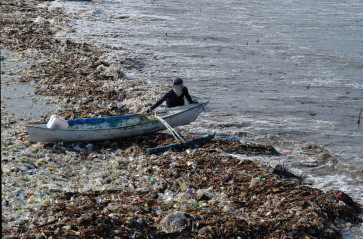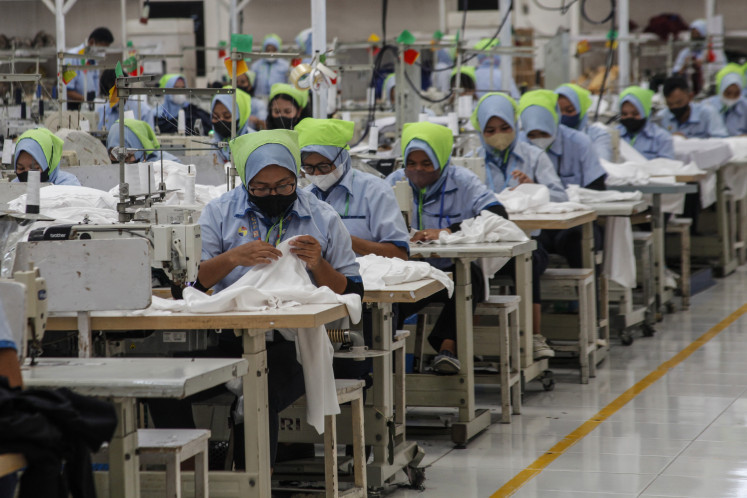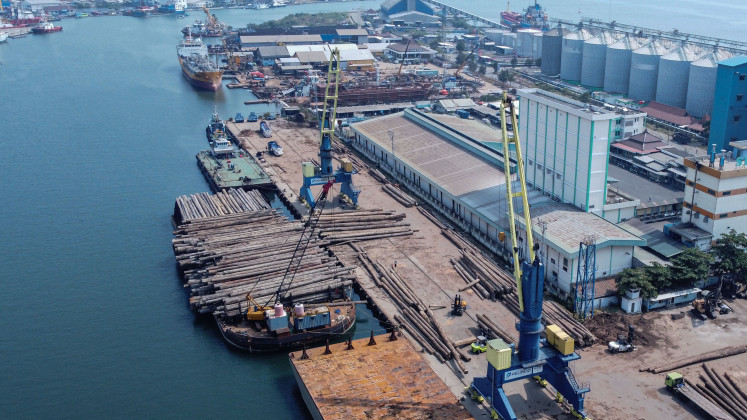Popular Reads
Top Results
Can't find what you're looking for?
View all search resultsPopular Reads
Top Results
Can't find what you're looking for?
View all search resultsPesticide use threatens health of plantation workers
Oil palm plantations throughout North Sumatra are reportedly still using dangerous pesticides, putting the health of plantation workers and local communities at risk
Change text size
Gift Premium Articles
to Anyone
O
il palm plantations throughout North Sumatra are reportedly still using dangerous pesticides, putting the health of plantation workers and local communities at risk.
Results of an investigation jointly conducted by the Organization for Struggle and Empowerment of People (OPPUK) and the Pesticide Action Network Asia and the Pacific (PANAP) have revealed that pesticides used in oil palm plantations in Indonesia contain active substances that can cause health problems
in humans.
OPPUK executive director Herwin Nasution said workers at oil palm plantations who worked as pesticide sprayers usually suffered similar health problems, such as headaches, blurred vision, excessive sweating, breathing difficulties and irregular heartbeats.
“We have found 42 victims of pesticide poisoning in several areas. All of them are temporary laborers who work as pesticide sprayers in oil palm plantations,” said Herwin during a press conference in Medan, North Sumatra, on Monday.
Citing an example, Herwin said his investigation team once found a female worker who suffered health problems when she worked as a pesticide sprayer in an oil palm plantation in Labuhan Batu regency, North Sumatra, for 10 years.
The activist explained that the 36-year old woman suffered from breathing difficulties and vomited blood. “After she was moved to another division and no longer worked as a pesticide sprayer, her health improved,” said Herwin.
The investigation into the use of dangerous pesticides in oil palm plantations took place over three months.
The investigation was conducted in private-owned oil palm plantations located in four areas, namely Asahan, Deli Serdang, Labuhan Batu and South Tapanuli.
Herwin said many plantation workers who worked as pesticide sprayers were women and were not provided with adequate knowledge and understanding about the impact of pesticide use on their health.
As a result the workers have always ignored the safety and health aspects of their jobs in return for wages that were not commensurate with the risks.
“This is proof that plantation companies have failed to protect their workers from the danger of pesticides,” said Herwin,
The use of dangerous pesticides has been prohibited in Indonesia through Agriculture Minister Regulation (Permentan) No. 01/2007. In the Permentan, the government lists 36 active substances prohibited for use as pesticides. Not only do they cause severe health problems for human beings, the use of dangerous pesticides in oil palm plantations can also affect the quality of oil palm fresh fruit bunches.
“The production of oil palm trees can be maximized through the use of pesticides as they kill pests and weeds, but the quality of the fresh fruit bunches will be lower because their chemical residue levels are high,” said Herwin.
PANAP has investigated the health effects of pesticide use in Indonesia and three other countries, namely Cambodia, Malaysia and the Philippines. The result of its investigations in the four countries will be announced simultaneously in Malaysia next year.
Lambok Simbolon, an OPPUK investigation team member, said the investigation was conducted using a community-based pesticide action monitoring method. This method reveals that many oil palm plantations in North Sumatra are still using active substances to destroy pests and weeds despite the pesticides containing carcinogenic substances such as glyphosate.
“Most plantation workers do not know the danger of these pesticides so they often do not wear a mask when spraying pesticide on the oil palm trees,” said Lambok.










